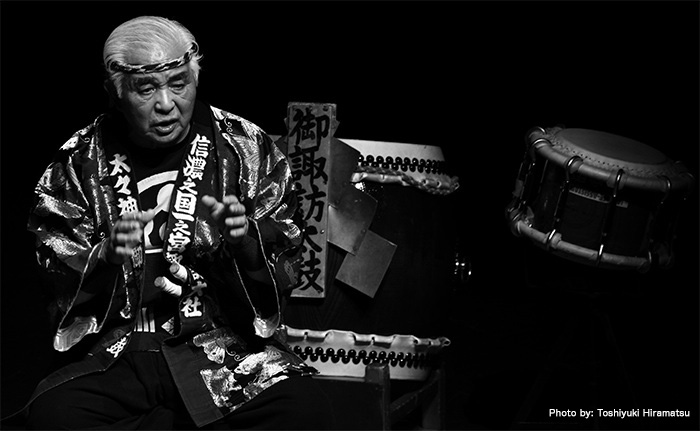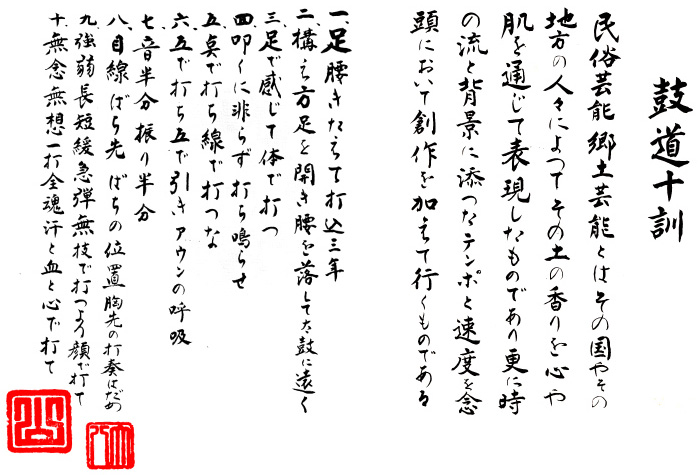Grandmaster Daihachi Oguchi is credited with inventing kumi-daiko, the ensemble style of taiko drumming, in 1951. After founding his own ensemble,
Osuwa Daiko, he led the spread of modern Taiko throughout Japan and the U.S.
A former jazz drummer, Daihachi Oguchi took ancient rhythms, broke them down and created new arrangements and compositions to accommodate an ensemble of drummers. One day, he was asked to interpret an old sheet of taiko music for the Osuwa Shrine, which was found in an old warehouse. The rhythm pattern of the piece was too simple for him to play and he wondered why nobody played taiko together. A marvelous idea came across his mind and made him decide to break through tradition.
Inspired by a western drum set, he formed a group in which each player beats a different taiko. He gave the group a function as a drum set. A high-pitched Shime-daiko established a basic rhythm like a snare drum. A growling Nagado-daiko added accents like a bass drum. His intention was right to the point, and this epoch-making invention changed taiko music forever.
Daihachi Oguchi helped turn the traditional form into a dramatic performance spectacle, elevating the traditional folk sounds of taiko to modern music played in concert halls, not just festivals and shrines. The period from the late 1960's to the 1990's in Japan seemed to be the Renaissance of taiko music. The activities of Osuwa Daiko and other early kumi-daiko groups in the 1960's, and the taiko performance at the Tokyo Olympics in 1964 ignited the phenomenal taiko boom which followed.
Grandmaster Daihachi Oguchi helped found taiko groups around the world, including San Francisco Taiko Dojo, which has performed in Hollywood movies and on international tours since forming over 40 years ago. Daihachi Oguchi also led and starred in the performance of drumming and dance at the closing ceremony of the 1998 Nagano Olympics.
“Your heart is a taiko. All people have an internal taiko and they listen to a taiko rhythm dontsuku-dontsuku in their mother’s womb,” Daihachi Oguchi told The Associated Press at that time. “It’s instinct to be drawn to taiko drumming.” “In taiko, man becomes the sound. In taiko, you can hear the sound through your skin”.
In 2008, Daihachi Oguchi passed away at age 84 after being hit by a car while crossing the street. Even up to two hours before, he had spent nearly everyday spreading the power of taiko through his teaching and performances.



